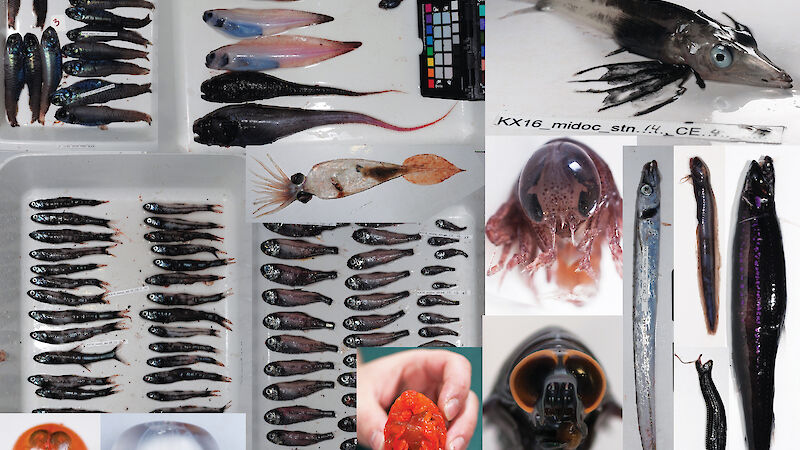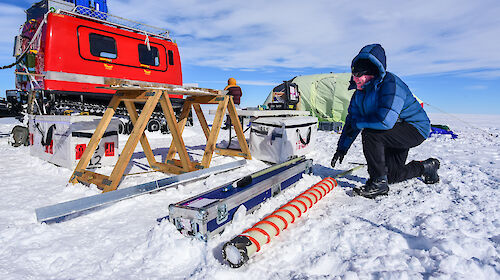The leader of a collaborative Australian-European marine ecosystem project received the ‘Star of Europe’ Award at a ceremony in Paris yesterday.
Dr Patrick Lehodey of CLS Group in France was recognised for the coordination and leadership of the Mesopelagic Southern Ocean Prey and Predators (MESOPP) project.
The project was established to improve collaboration between Australian and European research teams studying marine ecosystem function, climate change and fisheries, in the Southern Ocean and Antarctica.
Australian Antarctic Division marine ecosystems scientist Dr Andrew Constable, who led components of the Australian research, said the three year project focused on the development of a model of micronekton (small marine organisms such as fish, squid and krill) and fish population dynamics, to explore the impact of climate change and fisheries pressures on the ecosystem.
“MESOPP aimed to share methodologies and research data between participating research institutes, to estimate the biomass of micronekton in the Southern Ocean and better understand the groups of organisms that comprise it,” Dr Constable said.
The project also aimed to better understand processes that affect Southern Ocean ecosystem dynamics, including the carbon cycle and the distribution of large predators.
“Without a good knowledge of the dynamics and biomass of micronekton species and an understanding of their role in the ecosystem to support the large diversity of predator species, future development of fisheries to exploit micronekton species could have dramatic impacts on the whole ecosystem,” Dr Constable said.
MESOPP involved a consortium of eight partners, including the Australian Antarctic Division, CSIRO and the University of Tasmania, two groups from France, two from the United Kingdom and one from Norway.
The Star of Europe Award, created in 2013 by the Ministry of Higher Education and Research, recognises teams of researchers for their European commitment and their work in coordinating projects.


